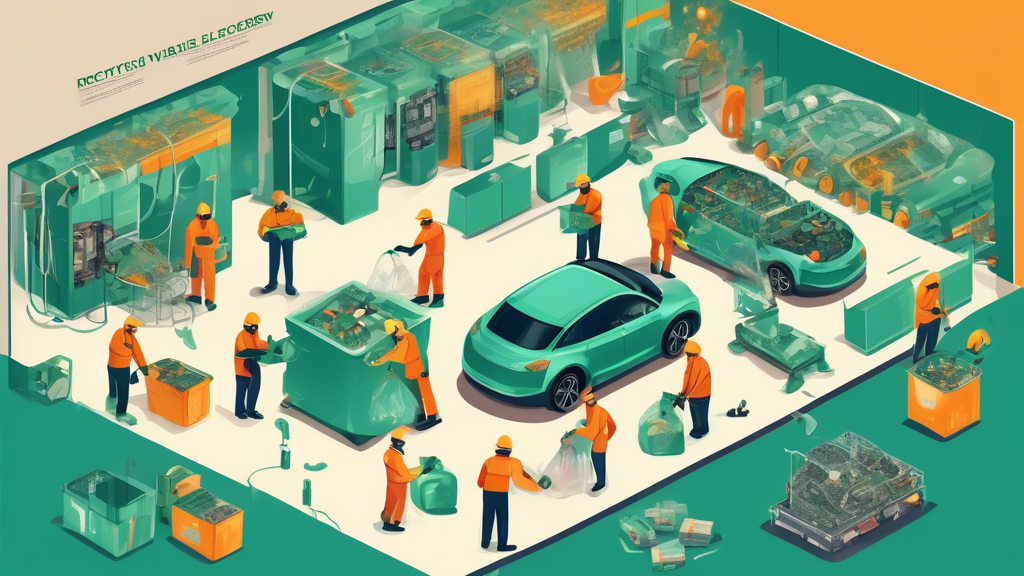
The Big Question: Can You Recycle Electric Vehicle Batteries?
So, you’ve embraced the electric future and procured an eco-friendly car. Bravo! But amidst the silent whir of your electric vehicle (EV), have you ever wondered what happens to the battery powering your ride once it goes kaput? Can you recycle electric vehicle batteries? It’s not just a matter of curiosity—understanding the recyclability of these powerhouses is crucial for continuing our green streak.
Why Worry About Recycling EV Batteries?
First off, EV batteries are not your typical AA batteries. They’re massive units of lithium, cobalt, nickel, and other materials that are not so friendly if dumped in a landfill. As the number of electric vehicles on the road burgeons, so does the pile of batteries needing disposal. Extracting these metals from the earth is no small feat and not kind to our planet. It begs the question: can’t we reuse what we already have rather than digging for more? Spoiler alert: yes, yes we can.
The Complexity of the Matter: What’s Inside an EV Battery?
Understanding the recyclability of EV batteries requires a little dive into their guts. These batteries, particularly the lithium-ion type used in most electric vehicles, are intricate devices crafted with multiple valuable and hazardous materials. Their structure makes them less straightforward to recycle than your standard recyclable soda can. Ever tried untying a supremely tight knot? It’s somewhat like that but with more chemical reactions.
Current Recycling Methods: Not Just Trash Talk
Today, recycling EV batteries is not just a pipe dream but a burgeoning industry getting better by the nanosecond. Techniques typically involve a fun party mix of mechanical processing (picture a high-tech shredder) and hydrometallurgical methods (which sounds fancy but is essentially chemical treatment) to separate the precious materials. This meticulous process ensures that materials like lithium and cobalt can live to see another day in a new battery, reducing the need to mine new resources.
The Second Life Solution: Reuse, Repower, Reimagine
Before reaching for the shredder, it’s worth noting that EV batteries, even after outliving their usefulness in your vehicle, aren’t entirely out of juice. Many can find a second life in less demanding roles, such as energy storage systems. Think of it as semi-retirement; they may not handle a cross-country road trip, but they’re perfect for storing solar energy on a sunny day. This not only prolongs the material’s life but also reduces waste. Isn’t that a win-win?
Challenges and Roadblocks – Recycle Electric Vehicle Batteries
Of course, it’s not all smooth driving on the road to recycling nirvana. The economics of recycling—costly processes, fluctuating material prices, technological barriers—can be as volatile as a poorly managed lithium-ion battery. Moreover, regulatory landscapes differ wildly globally, which can either drive forward or stall recycling efforts.
The Future Is Now: Innovations in Recycle Electric Vehicle Batteries
The good news? Innovators and environmental aficionados worldwide are constantly working on improving recycling methods. From advancements in sorting and separation technologies to government incentives promoting sustainable practices, the journey towards efficient and effective recycling is underway. These pioneering endeavors promise a greener future and actively carve the path toward it.
So, What Can You Do?
While you might be unable to dismantle and recycle an EV battery in your backyard (and honestly, who’d want to?), you can make decisions supporting the sustainability cycle. Choose electric vehicles from manufacturers committed to responsible battery recycling practices, stay informed about recycling programs, and maybe even advocate for better recycling policies in your community.
Remember, every electric mile driven is a step towards a cleaner planet, but ensuring the journey doesn’t end up in a landfill is up to all of us. Are you ready to keep the wheels of sustainability turning?
